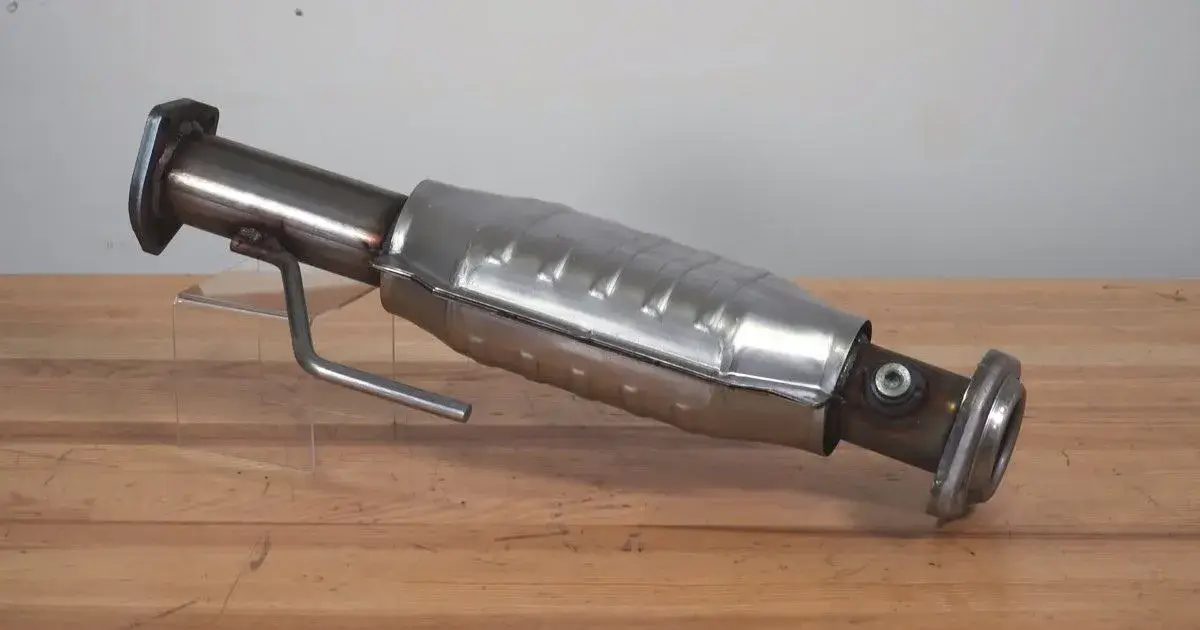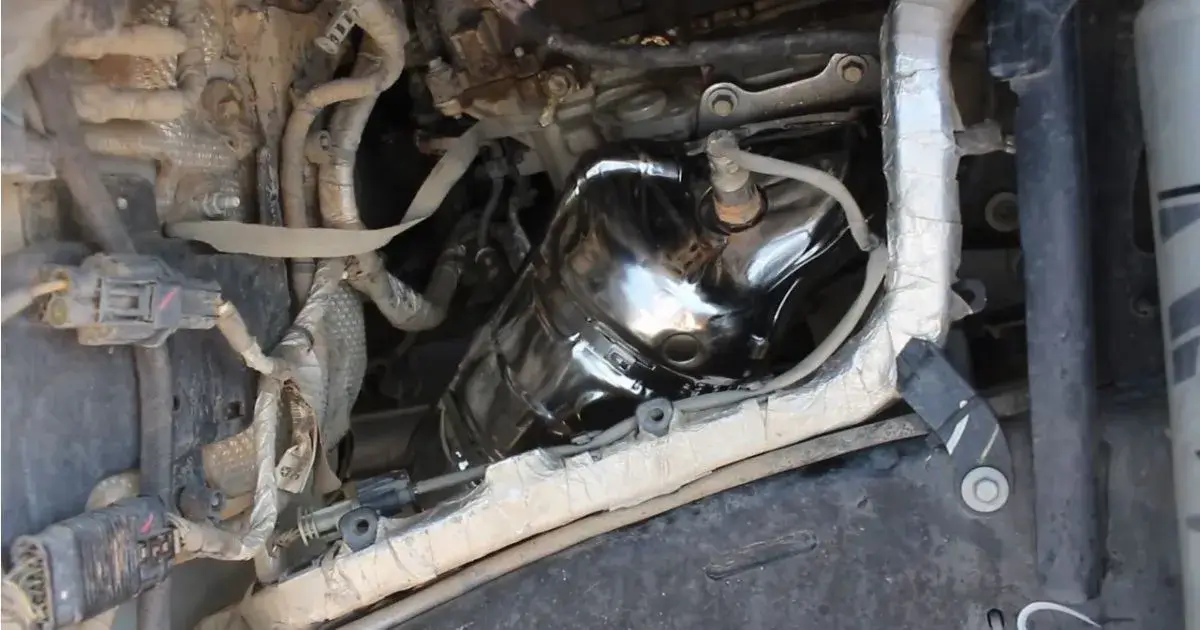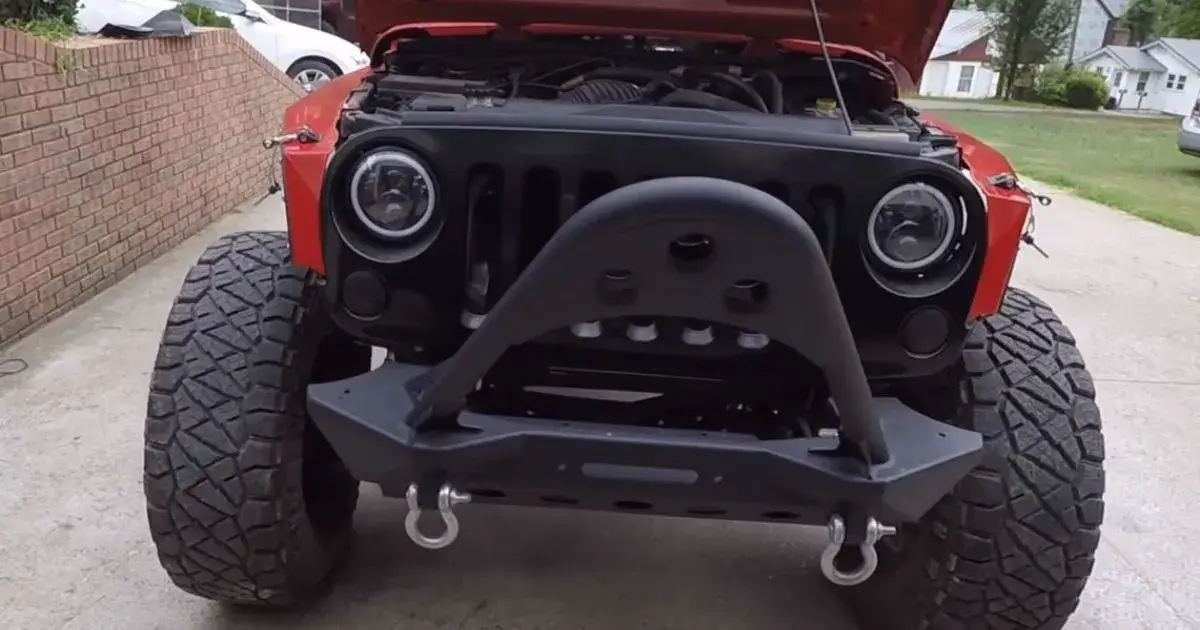Yes, all Jeep Wranglers come with catalytic converters installed. A catalytic converter is a device that helps to convert pollutants in exhaust gases from an internal combustion engine into less harmful substances.
It’s a critical component for meeting environmental regulations and keeping the air clean. Without it, your Jeep would be pumping out harmful gases that are harmful to both the environment and your health.
So if you want to keep your Jeep running smoothly and protect the environment at the same time, read on to learn everything you need to know about catalytic converters for Jeep Wranglers. With insights from experts in the automotive industry, we’ve got you covered!

What is a Catalytic Converter?
Catalytic Converter is a device that’s installed in your car’s exhaust system to help reduce harmful emissions. You see, when your car burns fuel, it produces harmful gases like carbon monoxide, nitrogen oxides, and hydrocarbons. These gases are bad for the environment and can contribute to air pollution and climate change.
That’s where the catalytic converter comes in. It’s a small, honeycomb-like structure made of precious metals like platinum, palladium, and rhodium. As the gases from your car’s engine pass through the honeycomb, they react with the metals and are converted into less harmful gases like carbon dioxide, nitrogen, and water vapor.
Catalytic converters have been around since the 1970s and are required by law in most countries to help reduce emissions. They’re an important part of your car’s exhaust system and help keep the air we breathe cleaner and healthier.
Do Jeep Wranglers have Catalytic Converters?
If you’re a Jeep Wrangler owner or thinking about buying one, you might be wondering whether or not it has a catalytic converter. The good news is that almost all Jeep Wranglers produced after 1987 have catalytic converters installed as standard equipment.
Catalytic converters are an important part of any vehicle’s exhaust system because they help reduce harmful emissions that can harm the environment. Jeep Wranglers, being a popular off-road vehicle, produce more emissions than other types of vehicles due to their higher fuel consumption and rough terrain use. That’s why it’s especially important for Jeep Wranglers to have catalytic converters installed.
If you have an older Jeep Wrangler model that was produced before 1987, it’s possible that it may not have a catalytic converter installed. However, it’s important to note that removing a catalytic converter from your vehicle is illegal and can result in fines and penalties.
Read also: How Many Catalytic Converters Does a Jeep Liberty Have?
Why are catalytic converters important for Jeep Wranglers?
Catalytic converters work by converting harmful gases like carbon monoxide, nitrogen oxides, and hydrocarbons into less harmful gases like carbon dioxide, nitrogen, and water vapor. This process helps keep the air we breathe cleaner and healthier.
Jeep Wranglers with catalytic converters installed can also have better fuel efficiency and overall performance. That’s because catalytic converters help your vehicle’s engine run more efficiently, which can improve your gas mileage and save you money at the pump.
Additionally, having a properly functioning catalytic converter is important for passing emissions tests, which are required by law in many states. Without a catalytic converter, your Jeep Wrangler may not pass an emissions test and you could face fines and penalties.

How to tell if your Jeep Wrangler’s catalytic converter is failing
As a Jeep Wrangler owner, it’s important to know the signs of a failing catalytic converter. A failing catalytic converter can cause a variety of problems, from decreased fuel efficiency to increased emissions.
One of the most common signs of a failing catalytic converter is a decrease in your Jeep Wrangler’s overall performance. You may notice that your vehicle is sluggish or has a hard time accelerating, or that it’s using more fuel than usual. This can be caused by a clogged catalytic converter that’s preventing proper airflow.
Another sign of a failing catalytic converter is a strange smell coming from your exhaust. If you notice a strong, sulfuric smell or a burning odor, it could be a sign that your catalytic converter is overheating and burning off the harmful gases inside.
Finally, a failing catalytic converter can also cause your check engine light to come on. If you notice that your check engine light is illuminated, it’s important to get your Jeep Wrangler checked out by a professional mechanic as soon as possible.
Where is the Catalytic Converter on a Jeep Wrangler
If you’re looking to find the catalytic converter on your Jeep Wrangler, it’s actually quite simple. It’s located under the vehicle, just behind the engine. More specifically, it’s mounted on the exhaust pipe that runs from the front of the engine to the back of the vehicle.
The catalytic converter is an important part of your Jeep Wrangler’s emission control system. Its job is to convert harmful chemicals and pollutants in exhaust gases into less harmful substances before they’re released into the atmosphere.
A properly functioning catalytic converter is essential for keeping your Jeep Wrangler running clean and efficient.
Read also: Jeep Grand Cherokee Catalytic Converter Location
Jeep Wrangler Catalytic Converter Replacement Cost
The cost to replace a Jeep Wrangler catalytic converter can vary depending on the year, make and model of your vehicle. The average cost for a Jeep Wrangler catalytic converter replacement is between $857 and $1,103.
Labor costs are estimated between $169 and $211 while parts are priced at $688. This range does not include taxes and fees and does not factor in your specific vehicle location.
Jeep Wrangler Catalytic Converter Anti Theft
As anyone who owns a Jeep Wrangler knows, the catalytic converter is one of the most important parts of the vehicle. Not only does it help to reduce emissions, but it also helps to improve fuel economy. Unfortunately, the catalytic converter can also be a target for thieves, who can steal it for its scrap value.
There are a few things that you can do to protect your catalytic converter from theft. One is to park in a well-lit area, as thieves are less likely to strike in a public place where they could be seen.
Another is to invest in a good quality security system that includes sensors that will trigger an alarm if someone tries to tamper with your vehicle.
Finally, you can install a physical barrier such as a metal cage around the converter itself. While there’s no guaranteed way to prevent your catalytic converter from being stolen, following these tips should help deter would-be thieves and give you peace of mind when parking your Jeep Wrangler.
Read also: How Many Catalytic Converters Does a Jeep Cherokee Have
Jeep Catalytic Converter Theft
If you own a Jeep, you may want to keep an eye on your catalytic converter. In recent years, there has been an uptick in catalytic converter theft from Jeeps across the country. Why are Jeep catalytic converters being targeted?
There are a few reasons.
First, Jeeps have a higher ground clearance than most other vehicles, making it easier for thieves to access the converter.
Second, converters contain precious metals like platinum and palladium that can be sold for cash.
Finally, Jeeps are often left unattended in public spaces like parking lots, giving thieves ample opportunity to strike. How can you protect your Jeep’s catalytic converter? The best way is to park in a well-lit and highly visible area whenever possible.
You should also consider installing a security device like a kill switch or alarm system that will make it more difficult for thieves to steal your converter.

FAQs
Is It Hard to Steal a Catalytic Converter from a Jeep?
Theft of catalytic converters is on the rise as thieves target the precious metals inside them. The cost and hassle of replacing a stolen catalytic converter can be significant, so it’s important to take steps to protect your vehicle. Here’s what you need to know about the theft of catalytic converters and how to prevent it.
Catalytic converters contain small amounts of platinum, palladium, and rhodium, which are all valuable metals. Thieves are attracted to these materials because they can be sold for a high price. Catalytic converter theft typically occurs in parking lots or garages where vehicles are left unattended for long periods of time.
The thief will quickly remove the converter from the vehicle and then sell it to a scrap yard or metal dealer. The loss of a catalytic converter can cause significant damage to a vehicle’s engine. In some cases, the engine may no longer run properly without the converter in place.
Replacing a stolen catalytic converter can cost several hundred dollars or more, depending on the make and model of your vehicle. There are several things you can do to prevent your catalytic converter from being stolen:
- Park in well-lit areas or close to security cameras whenever possible.
- Consider installing an anti-theft device on your vehicle (such as an immobilizer).
- Ask your insurance company if they offer coverage for the replacement of stolen catalytic converters.
Taking these precautions will help deter thieves and protect your vehicles from this costly crime.
How Much is a Jeep Wrangler Catalytic Converter Worth?
The catalytic converter is an important emission control device in your Jeep Wrangler. It helps to convert harmful exhaust gases into less harmful ones. Therefore, it is worth making sure that it is in good working condition.
A new catalytic converter can cost anywhere from $200 to $2000, depending on the make and model of your vehicle. However, you may be able to find a used one for much less. If you are buying a used catalytic converter, it is important to have it tested to ensure that it is still functioning properly.
What Year Did Jeep Start Using Catalytic Converters?
The first Jeep models with catalytic converters were introduced in 1984. The technology was not required by law until the following year, 1985, when the Environmental Protection Agency (EPA) began mandating their use on all new cars and trucks sold in the United States.
While some other automakers had been using catalytic converters on their vehicles for a few years prior to 1984, Jeep was among the first to make them standard equipment across its entire model line.
This helped the company meet emissions regulations without compromising its off-road capabilities or rugged image. Today, all Jeep models are equipped with catalytic converters as standard equipment. Thanks to continual improvements in converter technology, today’s Jeeps produce far fewer emissions than those from even a few decades ago.
What Cars Dont Have Catalytic Converters?
Not all cars have catalytic converters. Some older model cars and trucks did not come equipped with them. Catalytic converters are not required in some states, such as Alaska.
Exceptions are also made for certain types of vehicles, such as those used for off-road purposes or racing.
Replacing The Catalytic Converter on my 2008 Jeep Wrangler
Final Words
Jeep Wranglers have catalytic converters as mandated by the Environmental Protection Agency (EPA) in the United States. The catalytic converter is an essential component of the vehicle’s exhaust system, responsible for reducing harmful emissions of carbon monoxide, hydrocarbons, and nitrogen oxides into the atmosphere.
While it is possible to remove the catalytic converter from a Jeep Wrangler, it is illegal and can result in hefty fines and penalties. Furthermore, removing the catalytic converter negatively impacts the environment and contributes to air pollution.
Therefore, it is highly recommended to keep the catalytic converter installed in your Jeep Wrangler to ensure it meets the required emissions standards and reduce your impact on the environment.

